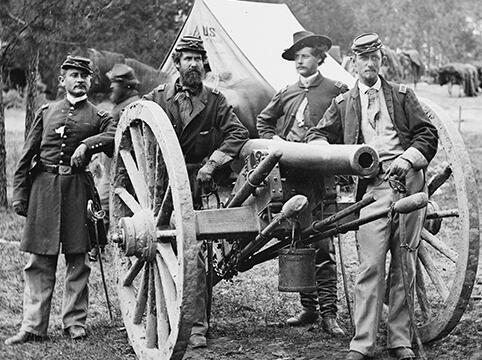Sgt. John Kennedy
USCIS Fort Smith Field Office

U.S. Army Sergeant John Kennedy, a Medal of Honor recipient for actions as a private in the Civil War, was born May 14, 1834, in County Cavan, Ireland. During the Civil War, he enlisted in the Union Army and served with Company M, 2nd U.S. Artillery, in General George Armstrong Custer’s Michigan Cavalry Brigade.
On June 11, 1864, Kennedy and four other soldiers were assigned to an artillery piece at Trevilian Station, Virginia (shown at lower left on the map as Trevilians). Confederate Captain Daniel A. Grimsley ordered his cavalry squadron to attack the artillery position. Kennedy and a fellow private, Charles O’Neil, remained at the cannon to cover their unit’s retreat. They found themselves cut off from retreating, and exhausted their munitions.
Armed only with tools, including the handspikes they used to maneuver their cannon, they tried unsuccessfully to resist capture. The Confederate Army took the two privates to Andersonville, Georgia, to the Camp Sumter Military Prison – the biggest and deadliest of the Civil War. O’Neil died there, but Kennedy survived. He stayed in the Army and advanced to the rank of ordnance sergeant. He retired in 1891.
Lieutenant Carle E. Woodruff nominated Kennedy for the Medal of Honor on June 11, 1892 – the 28th anniversary of his heroic actions. Major Alexander Pennington, who had witnessed the events as Kennedy’s commander, endorsed the nomination.
Kennedy received his Medal of Honor on August 19, 1892. His citation reads, “Remained at his gun, resisting with its implements the advancing cavalry, and thus secured the retreat of his detachment.”
He died in Laurel, Maryland, September 28, 1910, and was survived by his wife, Margaret. They are buried together in Little Rock, Arkansas.
